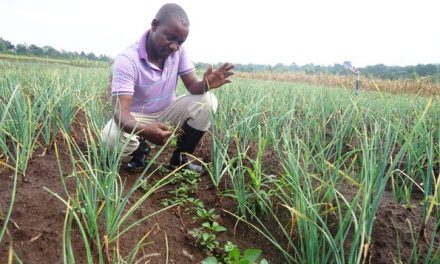Let us talk about saving, something I have dealt with before. Today I want to look at it with a particular focus on the Zimbabwean context. Saving is not a particularly easy thing to do as evidenced by many who do not. However, you will find that in the journey to financial freedom, saving is needed. Savings help with being prepared for incidental costs like emergencies that can pop up unannounced. This goes a long way in shielding you from getting into debt. One of the conventional recommendations is that you must save at least 10 per cent of every income you get. Is this feasible or realistic in Zimbabwe though? That is the focus of this article.
Why 10 Percent Though?
This has been something that many financial experts recommend as a reasonable starting point for savings. It is also widely adopted especially due to its mention in the book, The Richest Man In Babylon. If you have not read the book yet I encourage you to read it – a remarkable book! Arkad, the name of the richest man in Babylon, in the book said:
“Now I shall tell thee the first remedy I learned to cure a lean purse. For every ten coins, thou placest within thy purse take out for use but nine. Thy purse will start to fatten at once and its increasing weight will feel good in thy hand and bring satisfaction to thy soul.”
In other words, he was saying that the first step to your financial freedom is to set aside 10 per cent of every income you get. Of particular emphasis is that you must do this before you start spending.
Is This Workable In Zimbabwe?
This is not a black and white answer because there are some variables to consider. In the grand scheme of things, nothing is impossible. This means right off the bat I can tell you that it is workable. However, it would be most beneficial to you if I talk about some things.
Income Levels In Zimbabwe
There are varying levels of income amongst Zimbabweans but generally, the majority do not earn much. Additionally, most Zimbabweans earn their incomes in RTGS dollars (ZWL$ – Zimbabwean dollars). Sadly, most of those who are formally employed receive salaries in this form. Some do get a part (or even the whole) of their salary in US dollars. For the RTGS the unfortunate part is that the money is pegged using the interbank rate.
Here is how it is: someone gets US$300 i.e. that is what is on paper right. Then they get it is RTGS using the interbank rate. At the end of the day, this person is not getting US$300 when you factor in that they will use it in an operating environment dominated by parallel market rates. What this means is that this person, like many others, will have a salary that will not cater for all their needs. Now, bear in mind that it is very few Zimbabweans who even earn US$300; for most, it is US$100 or less. Do not forget also that there are plenty more who are not even formally employed at all. Thus income level has a huge bearing on one’s readiness to save at all in Zimbabwe.
The Weakness Of The Local Currency
This is yet another angle to explore because it affects many. If you are contemplating saving you cannot save in ZWL$ – the currency is highly mercurial. This implies one has to save in US dollars or Rands maybe. Factor in that most people get incomes in ZWL$; this means they must convert it first to US dollars. The only place they will get it is the parallel market. A place where they will be looking to buy US dollars with money that was based on the interbank rate. Do not forget also that buying US dollars using RTGS dollars is both expensive and hectic. Given all these heavy dynamics that one has to contend with saving becomes a pipe dream.
What Is The Bottom Line?
For those who earn good incomes and in US dollars, saving at least 10 per cent is easily doable. For those who cannot then it is abundantly clear that relying on the salary alone does not work. Consider someone earning RTGS$20K – 10 per cent would be RTGS$2000. Suppose you buy US dollars with that; you will get around US$14. That will not really do much let alone that RTGS$20K is not even enough for one’s needs. This means the most strategic way to create an atmosphere conducive to saving is to do more on the side. Start some small business that generates for you more money. Once you have added more income streams then saving at least 10 per cent becomes more doable.
An Important Point On Saving In Zimbabwe
In Zimbabwe, I think you should not focus on just saving. You rather should focus on saving to invest or for some purpose that generates more money. Probably, given the popularity of money clubs, you can save towards your money club (‘mukando’) contributions. It could also be saving for something that you want to buy later. Do not just save to put the money idly aside – money must beget more money.
The top 10 countries in the world with the best savings rates are Macao, the Republic of Congo, Qatar, Ireland, Brunei, Singapore, Luxembourg, Gabon, UAE, and China. Bear in mind that this does not mean these are countries with the highest incomes. This actually shows that having high incomes does not automatically mean the savings rate will be high. This in turn means having low incomes should not necessarily be an excuse for not saving. Saving is in your best interest thus you better start if you have not been already. Remember do not save idly; save for or with a purpose.









profound and so educative, thank you
Thank you for the feedback Ephraim and we are glad you found the content useful.
Glad to know. You’re welcome…